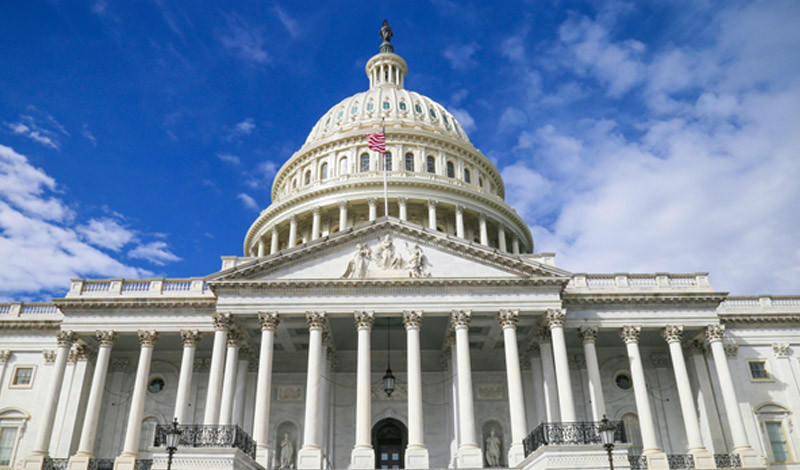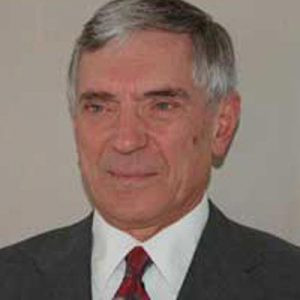US Congress Overrides President Obama`s Veto
To understand the implications of what has happened in the US Congress – the veto over-ride, we should remember that the fundamental principle of international law is reciprocity – the golden rule – do unto others as you would have them do unto you. Those who do the “doing” under basic international law are governments of nation-states, not individual persons. What states do (including permitting their citizens and residents to do) sets precedent for what is permitted to other states.

- by DR. Kenneth L. Wise ,
- Sunday, 10th January, 2016
Over the centuries one major rule that has developed is that each government must be sure that its citizens do not harm the citizens of other states. When someone fails to live up to this rule, the injured country may seek redress of that injury, that is, get appropriate compensation. An injured government may impose sanctions and even declare war to redress grievances.
But the US Congress didn’t declare war on the Kingdom of Saudi Arabia over 9/11/2001. It did attack Afghanistan when that country’s government refused to turn over to the United States those in Afghanistan who planned and carried the 9/11 attacks. Because most of the persons who conducted the attack were Saudi citizens, the United States had the right to attack Saudi Arabia as well, but chose not to, because Saudi Arabia cooperated fully with the US investigation of the terrorism.
These rules of “control your citizens” and “seek redress if others injure you” affect all governments. Any change in the rules would also affect all governments, through reciprocity.
This brings us to the over-riding of President Obama’s veto of the Justice Against Sponsors of Terrorism Act (JASTA), the bill that allows families of victims of the 9/11/2001 catastrophe to sue Saudi Arabia. (By analogy it could apply to any country accused of permitting terrorism to flow from its territory to injure another.) A nearly total majority of both houses of the US Congress voted to over-ride.
In response to the over-ride – the first in Obama’s presidency - Obama acknowledged that Congress sometimes finds itself incapable of doing what it should, voting “no” in this instance: “If you're perceived as voting against 9/11 families right before an election, not surprisingly, that's a hard vote for people to take. But [voting “no”] would have been the right thing to do....” Obama called Congress' move a "mistake." "I understand why it happened. Obviously all of us still carry the scars and trauma of 9/11, nobody more than this 9/11 generation that has fought on our behalf in the aftermath of 9/11," he said, speaking at a Town Hall style meeting with military personnel.
The United States has long since compensated victims’ families through government and judicial action, though a few cases remain pending in the courts.
The motivations for Congress, then, were not the needs of those injured or robbed of family and friends. Instead, this was in part a continuation of partisan opposition to Obama. In addition, Congress wished to appear to do something constructive for the populace after nearly a decade of poor governance. A major push for JASTA was a highly successful campaign by 9/11 survivors to extract further “blood money” directly from their primary target, Saudi Arabia. Hence, Obama correctly called this legislation “a political move.” Of course the White House has to take some blame, too, for failing to anticipate and head off the steamroller effectively.
This legislative error has occurred in a context importantly shaped by international law – a body of norms legislators in the United States too often do not understand or appreciate.
Yes, Saudi Arabia is liable under international law for not preventing its citizens from contributing to perpetrating the 9/11/2001 tragedy in the United States. The United States, then, has the right to redress, to expect Saudi Arabia to compensate the United States for the damage done to the United States. However, the United States has tried to discuss this with Saudi Arabia but the Kingdom refuses.
The law says that the United States may act on behalf of its own citizens but individual citizens cannot act. This preserves the sovereign jurisdiction of states, a fundamental requirement for global political stability.
But JASTA, if pursued, will upset this norm.
As Obama explains that this legislation has “said if a private citizen believes that having been victimized by terrorism -- that another country [e.g., Saudi Arabia] didn't do enough to stop one of its citizens, for example, in engaging in terrorism -- that they can file a personal lawsuit, a private lawsuit in court." He continued,. "And the problem with that is that if we eliminate this notion of sovereign immunity, then our men and women in uniform around the world could potentially start seeing ourselves subject to reciprocal laws."
JASTA opens the door to international legal chaos. The United States would not suffer alone, by the way. The government of any state could find itself subject to suits from anyone anywhere holding a grievance against it. Every aggrieved person around the world, from the descendants of the victims of Hiroshima to Vietnamese farmers to Iraqi shop-keepers to Libyan oil truck drivers to every refugee could begin filing suit against the United States or citizens thereof, especially the US military, aid workers, or intelligence agents.
"The concern that I've had has nothing to do with Saudi Arabia per se or my sympathy for 9/11 families," Obama said. "It has to do with me not wanting a situation in which we're suddenly exposed to liabilities for all the work that we're doing all around the world."
Under international law, governments around the world have the ability to negotiate with or build coalitions against the United States to protect or seek restitution for their citizens. Individual citizens do not need to sue other governments. Mechanisms of international organizations and practices of global diplomacy work to keep international relations somewhat orderly.
The US Congressional action threatens to disrupt this order.
Saudi Arabia and other countries JASTA potentially affects would be advised to hold off on defensive or pre-emptive moves against the United States because, fortunately, Congress inserted a crucial amendment into the law at the last minute. This amendment enables a President, through the US Attorney General, to halt action on any suits filed in US courts under this law.
Every President will feel compelled to invoke this provision until Congress comes to its senses and further amends or repeals the law. For example, such exemptions were renewed every six months regarding anti-Cuba legislation for nearly 60 years under twelve presidents. That dozens of members of Congress have just signed letters expressing reservations about JASTA similarly gives Obama and subsequent presidents a green light to thwart implementation of this law.
Yet some onus now falls on the Saudi government which has refused to negotiate about 9/11 because it believes to do so would acknowledge a role in the 9/11 plot thus making it culpable. This is understandable because to admit such guilt would become both an internal and international legal challenge for Riyadh. What Saudis have to reflect upon is that for the US Attorney General to intervene successfully, the President would have to attest to the court and Congress that the US government is involved in sincere negotiations in search of adequate compensation.

DR. Kenneth L. Wise
Read More
Areas of Expertise
- International Political Issues and Diplomacy
- National Security Policy and Geostrategy
- News Media Analysis
Education
- Ph.D. in International Studies, 1967, School of International Service of The American University, Washington, D.C.
- M.A. in International Law and Organization 1965.
- B.A. in Social Science, Midland University (USA), 1961.
Bio
From 2006 to 2013 Dr. Kenneth L. Wise directed b`huth`s (Dubai Consultancy Research & Media Centre) Policy Research Division and advised the UAE’s Watani social development program. He continues to contribute to bespoke research for b’huth. He directed b`huth conferences on national security and treating terrorism, participated in b’huth’s Terrorism Returnees Study, and contributed to a tribal reconciliation in Yemen. He helped design campaign workshops for candidates in the UAE’s first election—Federal National Council in 2006. For 40 years prior to 2006 Dr. Wise, now a member of the emeritus faculty, taught political science and international relations at Creighton University (Omaha, USA) at undergraduate and graduate levels. He chaired the political science department for more than ten years and co-founded and directed for 25 years the university’s Graduate Program in International Relations. During the North Atlantic Treaty Association’s transition period, 1987 to 1995, Dr. Wise was a member of the Senior Academicians Group advising the NATO Information Directorate and edited the papers of that group’s 1990 conference on integrating into NATO the newly unified Germany and giving new emphasis to NATO’s political role in the security of Europe from the Atlantic to the Urals: a foundation for the Partnership for Peace Program. Dr. Wise has lectured at universities and think tanks around the world such as UK Defence Academy, Council of Europe Vienna Commission on the European Constitution, Council on Foreign Relations (NY City), Foreign Policy Association (St. Petersburg), U.S. Army Command and General Staff College (Ft. Leavenworth), U.S. Strategic Air Command Long Range Planning, German Bundesinstitut (Cologne), Clingendael Institut (The Hague), Asienstiftung (Asia Foundation, Essen), Budapest University of Economic Sciences, Chinese Academy of Sciences (Beijing), University of Twente (Enschede), and U.S. Department of State (scholar in residence).

